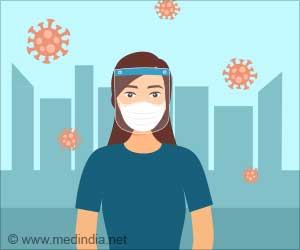-
COVID-19 can increase the risk of developing mental health issues like schizophrenia following infection - The risk of post-COVID risk of schizophrenia is higher among young individuals
- Vigilant monitoring of the mental well-being of COVID-19 survivors is crucial for the early detection and intervention of psychiatric disorders
The ongoing evolution of COVID-19 and its various variants has resulted in a global crisis with widespread consequences, creating countless ripple effects that extend across multiple aspects, including mental health.
Even amidst the resurgence of COVID-19 cases, a recent study has established a connection between SARS-CoV-2 infections and an elevated likelihood of early-onset mental health issues such as schizophrenia (1✔ ✔Trusted Source
SARS-CoV-2 Infection is Associated with an Increase in New Diagnoses of Schizophrenia Spectrum and Psychotic Disorder: A Study Using the US National COVID Cohort Collaborative (N3C)
).
What is Schizophrenia?
Schizophrenia is a severe mental disorder marked by hallucinations, delusions, and cognitive disturbances. Previous studies have hinted at viruses, including the flu and now COVID-19, as potential triggers for schizophrenia.
The newly conducted study, yet to undergo peer review, observed a notable rise in the probability of being diagnosed with schizophrenia spectrum and psychotic disorders (SSPD) after experiencing moderate to severe illness due to SARS-CoV-2 infection. This was compared against a group who had non-COVID Acute Respiratory Distress Syndrome (ARDS) .
Advertisement
Here are some Top Facts on Schizophrenia
COVID’s Impact on Mental Health Disorders
The study meticulously sifted through data from 19,344,698 patients to create comparable groups: ARDS, COVID-positive, and COVID-negative. They examined the risk rate of new-onset SSPD across three distinct timeframes: 0-21 days, 22-90 days, and beyond 90 days post-infection.
The findings consistently demonstrated that COVID-19-positive patients exhibited a notably heightened risk ratio across all intervals, surpassing both ARDS and COVID-negative patients. Intriguingly, the results highlighted a greater risk of SSPD among younger individuals after contracting COVID-19, a trend not observed in the ARDS and COVID-negative groups.
These results, in line with the known neurotropic nature of SARS-CoV-2, emphasize the crucial need for thorough psychiatric evaluation and support during long-COVID, especially for younger demographics.
In summary, closely monitoring the mental well-being of COVID-19 survivors is of critical importance. Their sustained increased risk raises broader societal concerns, particularly regarding severe psychiatric conditions like SSPD. Understanding these psychiatric risks associated with COVID-19 forms an integral part of the strategy to address the evolving landscape of long-COVID.
Advertisement
Reference:
- SARS-CoV-2 Infection is Associated with an Increase in New Diagnoses of Schizophrenia Spectrum and Psychotic Disorder: A Study Using the US National COVID Cohort Collaborative (N3C) – (https://www.medrxiv.org/content/10.1101/2023.12.05.23299473v1)
Source-Medindia



